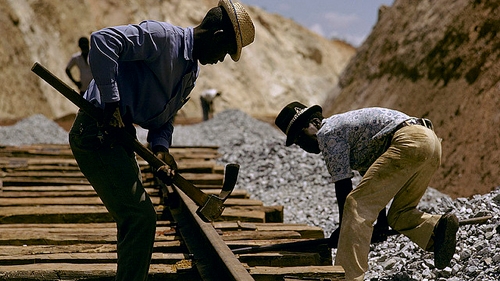
The slow economic growth in 2013 and an equally discouraging forecast for 2014 will mark three years of unsatisfactory economic performance in Latin America. The truth, however, is that these results have confirmed performance that has been mediocre since the market reforms. Between 1990 and 2013, GDP growth was just 3.3% per year, which compares very unfavorably with the rate of 5.5% achieved between 1950 and 1980, during the State-led industrialization era.
The only truly exceptional sub-period was 2003-2007, when growth came in at 5.6%. Since 2008, though, despite an extraordinary year (2010), the region’s economic growth has returned to an average rate of 3.0%.
Thus, the time has come to bury the concept of “the decade of Latin America.” The truth is that there was an extraordinary five-year period, which was interrupted by the North Atlantic financial crisis that began in mid-2007 and was fully unleashed by the bankruptcy of Lehman Brothers in September 2008. This period was even more extraordinary in social terms, as poverty fell from 43.9% in 2002 to 33.2% in 2008, according to ECLAC figures, and income distribution improved in about two-thirds of the region’s countries.
The exceptional five-year period between 2003 and 2007 was possible thanks to the coincidence, unique in the region’s history, of four extremely favorable external factors: rapid growth in international trade, the onset of a commodity price super-cycle, the return to cheap and abundant external financing, and the opportunities provided to Latin American migrants in the United States and Spain. Two of these conditions vanished when the North-Atlantic crisis hit: rapid trade growth and opportunities for migrants. Commodity prices have started to flatten after peaking in 2011, and external financing tightened on news of a monetary policy shift in the United States to a less expansionary stance in May 2013.
What this means is that Latin America’s economy no longer has, nor will it have, the tailwind that pushed it temporarily out of the mediocre growth of the past quarter century. Looking ahead, the region will have to rely on the fruits of its own efforts, and, it should be added, not bet on the benefits of further market reforms, the results of which have proven unsatisfactory.
This is possible if a change in course is made that includes four lines of action. The first and most important is to implement ambitious productive and technological development policies aimed at shifting the production structure towards sectors with greater technological content.
Some movement has been made in this direction over the past 15 or 20 years, but very little in most countries. Given the weak forecast for international trade, the second is to rely more on the region’s own markets. This means taking regional integration seriously and overcoming the myriad divisions that we have been created by diverging politics. The third is to mount a large‑scale effort in physical infrastructure, where investments in recent decades have been half or less than what is considered desirable, exacerbating the region’s well-known competitiveness gap.
Lastly, ongoing efforts must be enhanced to improve equality, an area in which some progress has been made but much remains to be done if the region is to shed the undesirable distinction of having the highest levels of inequality in the world.
* Professor in the School of International and Public Affairs and Member of the Committee on Global Thought at Columbia University. Formerly, United Nations Under-Secretary-General for Economic and Social Affairs, Executive Secretary of the Economic Commission for Latin America and the Caribbean (ECLAC), and Minister of Finance, Minister of Agriculture, and Director of the National Planning Department in Colombia. He was also member of the Advisory Committee of the Latin American Development Forum series, and author of two books in the series.


Join the Conversation